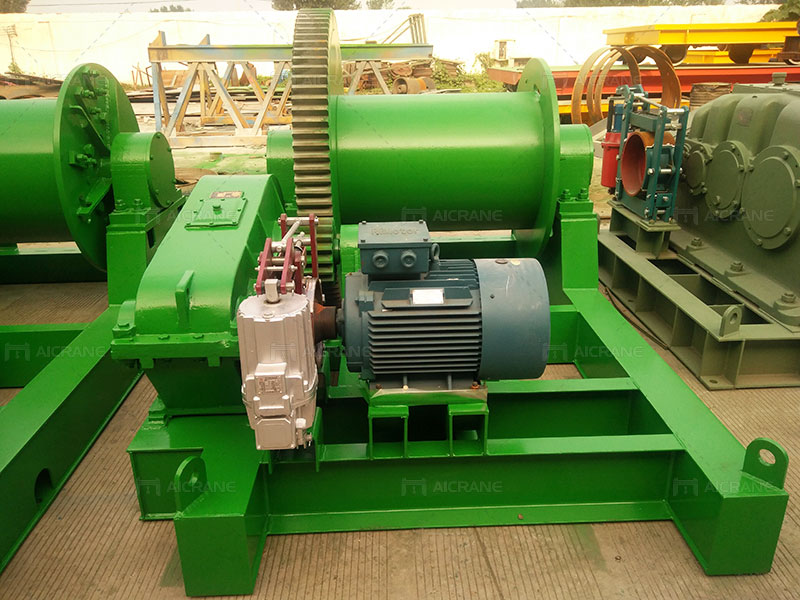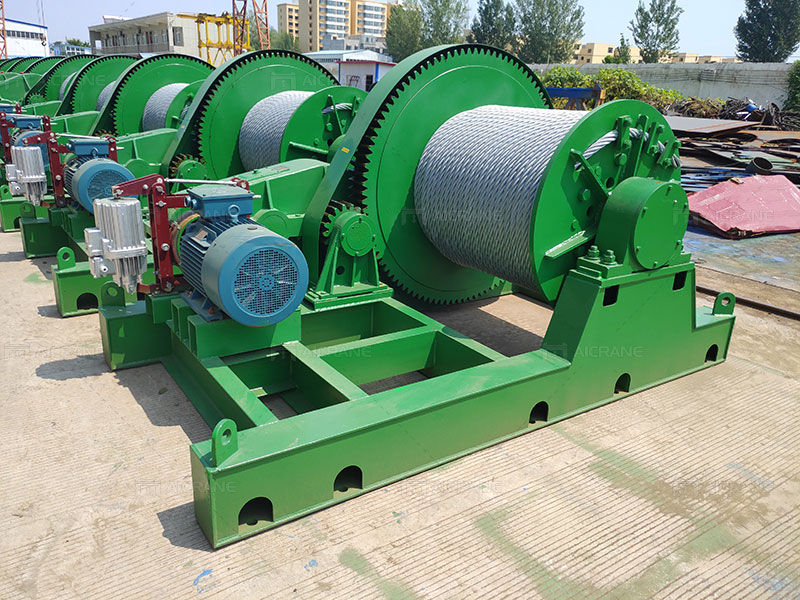When buying a 30 ton winch, there are several factors that you should consider to ensure that you get the right winch for your specific needs. Here are some tips to help you make an informed decision:

Consider the weight of the load: Make sure that the winch you choose is capable of handling the weight of the load you need to lift or pull. A winch 30 ton is typically designed to handle loads up to 60,000 pounds, but it’s important to double-check the specifications before making a purchase.
Look for a winch with a high-quality motor: The motor is the heart of the winch, and it’s important to choose a winch with a high-quality motor that is powerful enough to handle the load. Look for a winch with a motor that is rated for heavy-duty use and has a high horsepower.
Consider the winch cable: The cable or rope is what provides the pulling force for the winch, so it’s important to choose a cable that is strong enough to handle the load. Look for a winch with a high-strength cable or rope that is designed to withstand heavy loads.
Think about the environment: If you’ll be using the winch in harsh environmental conditions, such as extreme temperatures or wet or dusty environments, look for a winch that is designed to withstand these conditions.
Check the winch’s safety features: Safety is always a top priority when working with heavy equipment, so make sure that the winch you choose has safety features such as automatic brakes, overload protection, and emergency stop buttons.
Consider the brand and warranty: Choose a winch machine from a reputable brand that offers a good warranty and customer support. This will ensure that you have access to help if you encounter any issues with the winch.
Overall, buying a 30 ton winch requires careful consideration of the load, motor, cable, environment, safety features, brand, and warranty. By taking these factors into account, you can choose a winch that is safe, reliable, and efficient for your specific needs.

30 Ton Electric Winch vs Hydraulic Winch: Which One Is Right For You?
When deciding between a 30 ton electric winch and a hydraulic winch, there are several factors to consider to determine which type of winch is best suited for your specific needs. Here are some differences between the two types of winches:
Power source: A hydraulic winch is powered by hydraulic pressure generated by a hydraulic pump, while an electric winch machine is powered by electricity. This means that hydraulic winches require a hydraulic system to operate, while electric winches require a power source, such as a generator or electrical outlet.
Load capacity: Both electric and hydraulic winches can handle heavy loads, but hydraulic winches are typically better suited for heavy-duty applications where loads exceed 30 tons. Hydraulic winches have a higher torque output and can generate greater pulling force, making them ideal for heavy-duty applications.
Speed: Electric winches are generally faster than hydraulic winches because they don’t require as much time to build up hydraulic pressure. However, hydraulic winches are more precise and provide better control when lifting or pulling heavy loads.
Maintenance: Hydraulic winches require more maintenance than electric winches because they have more complex components, such as hydraulic pumps and hoses, that require regular inspection and servicing. Electric winches, on the other hand, have simpler components and require less maintenance.
Environmental factors: Hydraulic winches are better suited for harsh environmental conditions, such as high temperatures or wet or dusty environments, because they are less affected by these conditions than electric winches. Electric winches are more suitable for indoor or enclosed spaces, where hydraulic fluid leaks or spills could cause safety hazards.
Overall, the choice between a 30 ton electric winch and a hydraulic winch machine will depend on factors such as the load capacity, speed, maintenance requirements, and environmental factors of the job site. It’s important to carefully evaluate these factors to determine which type of winch is best suited for your specific needs.
